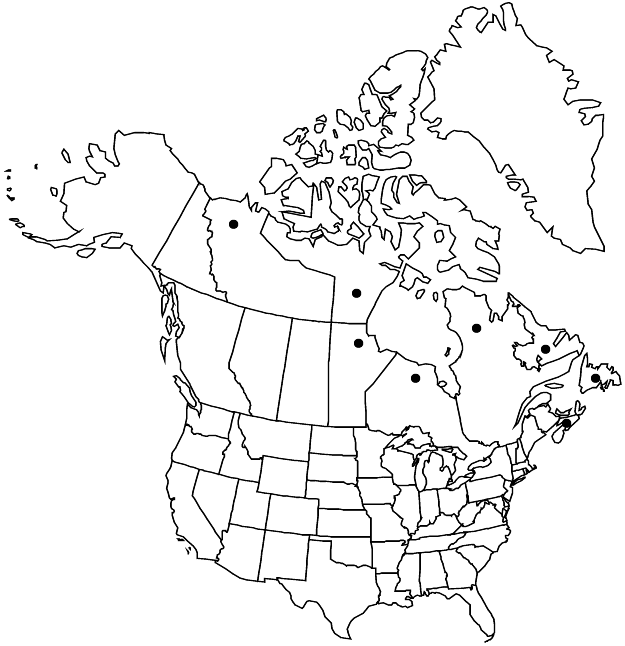Difference between revisions of "Polygonum fowleri subsp. hudsonianum"
Sida 20: 994. 2003.
imported>Volume Importer |
GeoffLevin (talk | contribs) m (Fixed italics in discussion) |
||
| Line 38: | Line 38: | ||
|elevation=0-30 m | |elevation=0-30 m | ||
|distribution=Man.;Nfld. and Labr.;N.W.T.;N.S.;Nunavut;Ont.;Que. | |distribution=Man.;Nfld. and Labr.;N.W.T.;N.S.;Nunavut;Ont.;Que. | ||
| − | |discussion=<p>Wolf and McNeill described Hudsonian knotweed as a subspecies of <i>Polygonum</i> | + | |discussion=<p>Wolf and McNeill described Hudsonian knotweed as a subspecies of <i>Polygonum caurianum</i> (<i>P. humifusum </i>subsp.<i> caurianum</i> in this treatment). In raising it to the rank of species, H. R. Hinds (1995) noted that “separation between <i>P. fowleri</i> and <i>P. hudsonianum</i>, however, is more difficult.” M. Costea and F. J. Tardif (2003) concluded that the taxon is best treated as a subspecies of <i>P. fowleri</i>, based on the existence of intermediate plants.</p> |
|tables= | |tables= | ||
|references= | |references= | ||
Latest revision as of 14:46, 15 June 2022
Plants often purplish tinged, homophyllous, rarely subsucculent. Stems prostrate, 5–30 cm. Leaves: ocrea 2.5–5 mm; petiole 2–5 mm; blade purple tinged, narrowly obovate or oblanceolate, 8–30 × 4–12(–15) mm, apex rounded to obtuse; middle stem leaves 1.1–1.8(–2.2) times as long as adjacent branch leaves. Cymes 2–7(–10)-flowered. Pedicels 1–1.5 mm. Perianths (2.2–)2.5–3.3(–3.5) mm. Achenes ovate-lanceolate, (2–)3-gonous, (1.8–)2–2.5(–3.1) mm, faces often unequal, ± flat to concave, roughened, rarely obscurely tubercled.
Phenology: Flowering Jul–Sep.
Habitat: Gravelly seashores
Elevation: 0-30 m
Distribution

Man., Nfld. and Labr., N.W.T., N.S., Nunavut, Ont., Que.
Discussion
Wolf and McNeill described Hudsonian knotweed as a subspecies of Polygonum caurianum (P. humifusum subsp. caurianum in this treatment). In raising it to the rank of species, H. R. Hinds (1995) noted that “separation between P. fowleri and P. hudsonianum, however, is more difficult.” M. Costea and F. J. Tardif (2003) concluded that the taxon is best treated as a subspecies of P. fowleri, based on the existence of intermediate plants.
Selected References
None.